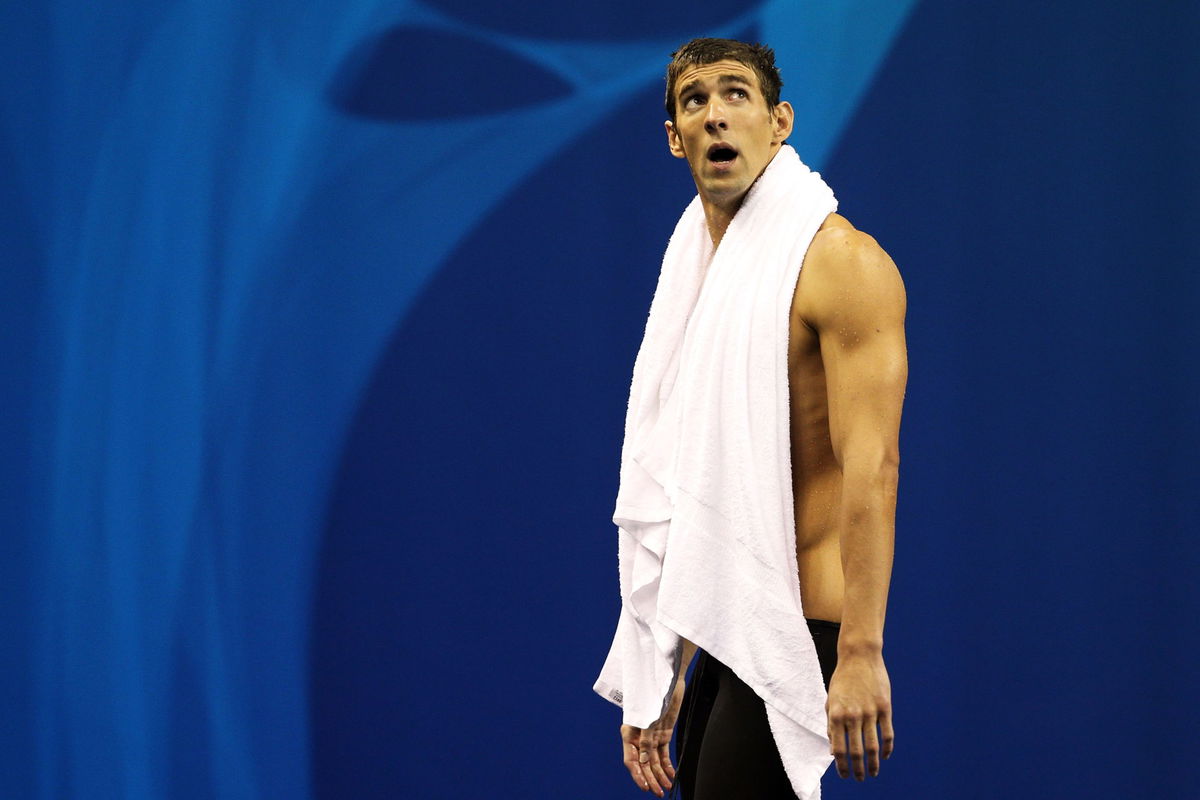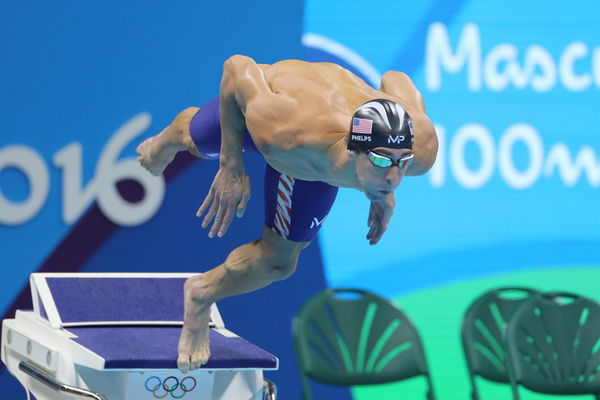
Getty
SHANGHAI, CHINA – JULY 24: Michael Phelps of the United States looks dejected after the the Men’s 4 x 100m Freestyle Relay final during Day Nine of the 14th FINA World Championships at the Oriental Sports Center on July 24, 2011 in Shanghai, China. (Photo by Clive Rose/Getty Images)

Getty
SHANGHAI, CHINA – JULY 24: Michael Phelps of the United States looks dejected after the the Men’s 4 x 100m Freestyle Relay final during Day Nine of the 14th FINA World Championships at the Oriental Sports Center on July 24, 2011 in Shanghai, China. (Photo by Clive Rose/Getty Images)
It’s been nearly six years since Michael Phelps took his last professional dive in a swimming pool. But the American swimmer continues to be one of the most discussed athletes to this day. His unmatched swimming abilities took him not only to the top of the podium but also to the epitome of athletic brilliance. Michael became nearly undefeatable as he won a record 23 Olympic gold medals during his career.
Watch What’s Trending Now!

Getty
RIO DE JANERIO, BRAZIL – AUGUST 12: Michael Phelps of the United States competes in the Men’s 200m Individual Medley within the Rio 2016 Olympic Games in Rio de Janeiro, Brazil on August 12, 2016. (Photo by Okan Ozer/Anadolu Agency/Getty Images)
During an episode of the podcast Joe Rogan Experience, Rogan invited a Canadian-American doctor. While in conversation, they made a curious implication that became a leading topic of discussion.
ADVERTISEMENT
Attia once implied Michael Phelps used PED’s
The Joe Rogan Experience quickly rose to fame and became one of the most successful podcasts on Spotify. Hosted by commentator Joe Rogan, the show sees various guests from different backgrounds having a chat with Joe Rogan over various (sports and non-sports) topics. One episode of the podcast saw Canadian-American doctor Peter Attia make an appearance. Peter and Joe sat down to discuss various athletes, one of which was Michael Phelps.
Attia mentioned that as swimmers compete, their lactate levels increase drastically, leading to a lot of pain. But some easily fight the pain off and continue to compete in more events. He added, “The word on the street is guys like Michael Phelps are at the opposite end of that.”
ADVERTISEMENT
ADVERTISEMENT
Attia added, “They are so efficient at shuttling lactic acid out of the cell, back to the liver, where this thing called the Cori cycle actually turns lactate back into glucose that they never have high levels of lactate. Now again, all this is very, sort of speculation because I think they were very hush-hush about Phelps’ numbers.”
Top Stories
Sources: John Harbaugh Wasn’t Fired, Left Ravens After Refusing Major Staff Changes

Bill Cowher’s Strong Message to Steelers on Firing Mike Tomlin After HC’s Blunt Playoff Message

Bengals’ Cam Taylor-Britt Sentenced to Jail: Everything We Know About Charges Against Him

Kyle Tucker Handed Blunt Reality Check as Blue Jays Shift Focus to Bolster Vladimir Guerrero Jr.

US Visa Rejections Put Major Track & Field Records at Risk at World Cross-Country Championships

Chiefs’ $58M News Complicates Travis Kelce’s Return As TE Gets 8-Figure Update

READ MORE: How Does Michael Phelps’ Physical Superiority Aspect Factor into the Recent Trans Athletes’ Debate?
ADVERTISEMENT
Peter also mentioned, “I heard from reliable and reasonable sources that he would rarely have a lactate of above 8.0, including when he was breaking world records.” He said Phelps was so efficient at getting rid of lactate that he could set the world record in the 400m and not have a lactate of over 8.0.
Phelps’ lactic acid advantage
The potential reason for Michael’s lactate levels staying so low was probably his unique lactic acid advantage. While the other swimmers experienced fatigue arising from the glycolysis process, Phelps’ advantage helped him stay relatively fresh.
ADVERTISEMENT

Getty
Swimming – Olympics: Day 7 Michael Phelps of the United States dives in at the start of the Men’s 100m Butterfly Final during the swimming competition at the Olympic Aquatics Stadium August 12, 2016 in Rio de Janeiro, Brazil. (Photo by Tim Clayton/Corbis via Getty Images)
Reportedly, Phelps produced half the lactic acid compared to his competitors, meaning the glycolysis process would take double the time to complete. It gave Michael more time to stay fresh and not experience fatigue early on. He would do the same distance as his competitors and be half as tired. This, combined with Phelps’ enormous 6’7ft wingspan, became the ultimate recipe for success.
WATCH THIS STORY: From Subway to Under Armour- Here Are Michael Phelps Famous Endorsement Deals
ADVERTISEMENT
Lower lactate levels, producing lesser lactic acid, and having a huge wingspan did not mean Phelps was being handed the gold medals. Phelps and his mentor, Bob Bowman, worked hard into turning his gifted attributes into undefeatable weapons in his arsenal.
ADVERTISEMENT
ADVERTISEMENT
ADVERTISEMENT

